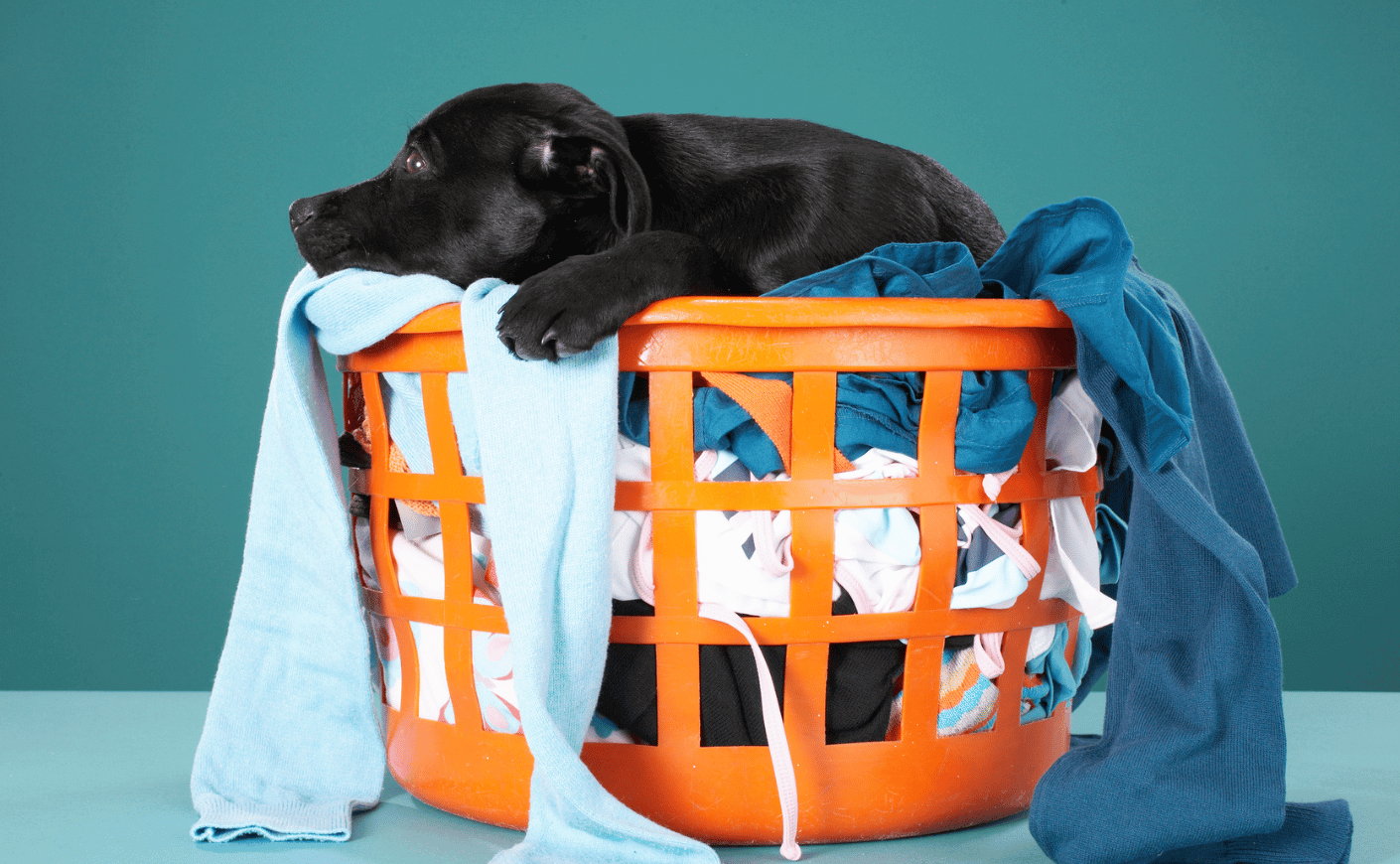Laundry can feel like a never-ending cycle. You empty out the hamper, and poof! It’s magically full again, overflowing with sweaty workout gear, endless amounts of socks, and dirty dishrags — and what’s the clump of clothing that’s been stuck down at the bottom for months? Actually…never mind.
And what warrants a wash, anyway? You’ve worn every piece of clothing in the pile on your chair, but does that mean it’s dirty? This might feel like a philosophical question, but it’s actually simpler than you think. There is an art to sorting laundry, and if you learn it, your clothing will last longer.
So, what’s the right way to wash your clothes? According to experts, it depends on the item. For example, both undies and socks should be washed after a single wear (they’re close to the body and soil easily). Do you really need to wash your bra or jeans after a trip to buy groceries? Not exactly. It depends on how much you sweat and how frequently you wear them.
Even if your blouse isn’t stained with morning coffee and doesn’t “look” dirty, we secrete a skin oil called sebum that isn’t usually visible but can eventually build up and start making your clothes smell bad, or worse, deteriorate.
To finally master the cyclical chore, we chatted with Mary Johnson, a fabric care scientist at P&G. Johnson explains why there’s a difference between how often you really need to wash your T-shirts, leggings, and winter coat; the must-have miracle product that’ll freshen up items without using a washing machine; and when to use (or steer clear of) chlorine bleach.
Katie Couric Media: How often do you recommend people do their laundry?
Mary Johnson: That’s a great question. We should wash things like underwear and socks after one wear. Things that are a little further removed, like a T-shirt or leggings , can stand about two to three wears before you need to wash them. Even a bra sometimes falls into that category. You might want to clean outerwear less regularly, like once a month, but definitely in between seasonal changes.
If you’re exercising or sweating a lot, this can change. On a typical day, without exercising, you actually release one liter of sweat. That’s just from sitting around. And along with that, our bodies also produce 40 grams of sebum, which is a skin oil. That’s the equivalent of about four packs of butter. Along with the sweat comes a teaspoon of salt and around two billion skin cells.
That’s a lot…
When you take off your socks or your clothes — especially in the winter when your skin is dry, or if you’re inside and the heat’s on and the humidity’s low — sometimes you’ll see a white cloud of dust. That’s dead skin. In fact, most of the dust in your house is dead skin.
You can only see 30 percent of the soil on your clothes. These are food stains or things like that. The rest of the 70 percent is made up of body soils. So that’s why we recommend you wash your clothes more frequently (even when they don’t look soiled).
As an expert, can you explain how we should wash our clothes?
Everyday clothes can actually be washed in cold water. That’s very sustainable, especially if you use a good quality detergent like Tide, which has enzymes that are optimized to break up stains and other types of soils. They kind of do the same function as inside your tummy when you’re digesting your lunch. Other cleaning agents pick them up and clean them away.
Some things that may need a warm water wash would be underwear, sometimes outerwear (if it’s heavily soiled), sports clothing (because this is where you’re sweating a lot), towels, and sheets. By warm water, we mean 80 degrees Fahrenheit or higher. And you want to be sure you’re using the appropriate dose of a high-quality detergent.
Is there a way to freshen up clothes without lugging them to the laundromat or into the washer?
There are some products that can help extend the life of your clothing in between washes. One great example is Tide Antibacterial Fabric Spray. It’s proven to kill 99.9 percent of bacteria on fabrics and it can actually help your clothes stay fresher for longer until you do your laundry.
How effective is a regular load of laundry in disinfecting our clothes?
Typically with laundry detergents and even deep clean laundry detergents like Tide, you’re cleaning, not disinfecting. You’re removing body soil, dirt, and microbes through cleaning, lifting them off of the fabrics, and they’re basically getting rinsed down the drain.
If you intend to sanitize or disinfect, you need to use a product that’s registered with the EPA as a sanitizer or disinfectant. One example of that is chlorine bleach, but you have to be really careful. Check the care label on your clothes, because many clothes have synthetic fabrics that could be ruined with chlorine bleach.
This interview has been edited and condensed.









